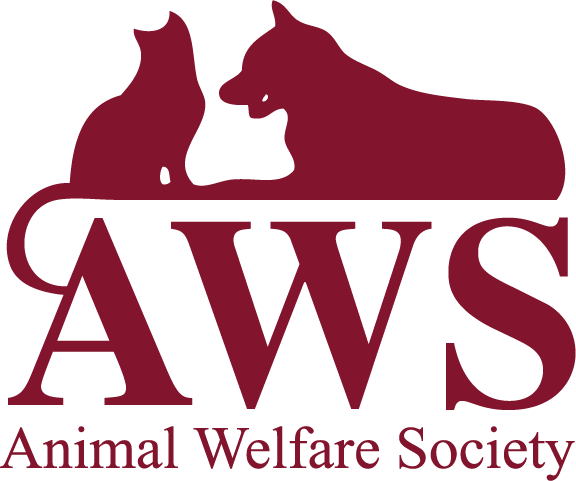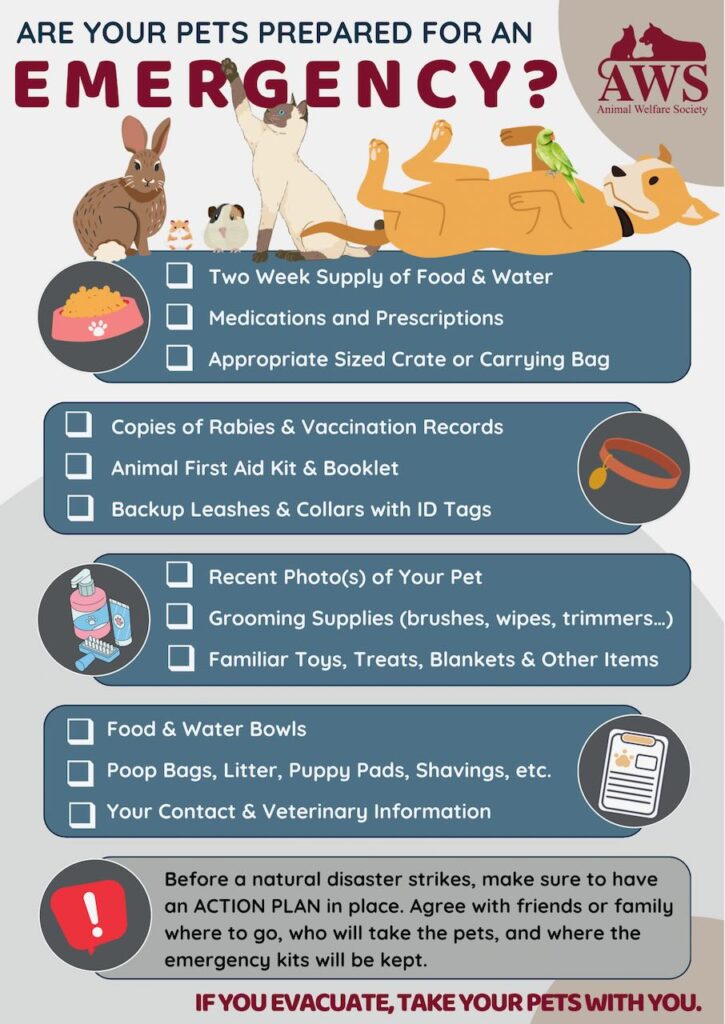Disaster Preparedness
Be prepared to protect your pets in an emergency or disaster.
Plan for your pet
Pets are more than just animals; they’re important members of our families! While September is National Preparedness Month, sponsored annually by FEMA, it doesn’t hurt to think about disaster preparedness any time of year. We never know whatever Mother Nature might have in store.
No matter what type of animal you may have, their safety is important during a disaster. Being prepared by having safety plan in place ahead of time will cause less difficulty, stress, and confusion when and if an emergency occurs. We’ve put together some resources to include in your family’s pet safety plan.
1. Updated Identification
If your beloved pet happens to get separated from you during an emergency, it’s important to always have their identification up to date. This is the quickest way to be reunited with them. Make sure your pet’s microchipped, wearing ID tags on their collar or harness, and that all information is up to date and correct. Almost any animal can be microchipped, and many places have easy and affordable tag machines that design and print an animal ID tag right on the spot. In fact, we have one right in our Adoption Center lobby for your convenience! In a pinch, an easy way to ID your pet is to write your phone number in sharpie on their collar.
2. A Buddy & A Backpack
During an emergency, having a close neighbor, friend, or relative ready to help care for or evacuate your pet should you be unavailable to do so is invaluable. Make sure this backup caretaker for your pet is familiar and comfortable with the animal (and vice-versa), and that they are aware of your pet’s feeding schedule, medications, behaviors, and habits. You should also have a pre-made an emergency kit (a backpack works great!) for your pet to leave with this caretaker. The kit should include all necessary items your pet may need.
4. Pet Friendly Accommodations
Calling motels, hotels, boarding facilities, and even vet offices outside of your immediate area to see if they can house pets can be a huge help during an emergency. Visit websites or call around to start making a list of hotels in your area are pet-friendly. You can start your search online at websites like BringFido.com. Keep this list handy in case your family needs to evacuate. Ask what pets they take, if there is a size, number, or weight restriction, if policies could be changed during an emergency, etc. Once the list is complete, if there ever is an emergency, you can call ahead and make a reservation as soon as you think your family might have to leave. Here in Maine, most Chambers of Commerce or local Visitors Centers keep a list of pet friendly accommodations. You can visit their website or call and ask for a visitors’ guide to be mailed to you.
5. Local Contacts
No matter the type of emergency, it’s always important to have updated and accurate contact information for:
- your local first responders (911 and non-emergency contact information)
- animal shelters (like AWS if you live in York County)
- animal control officers (usually reached through the police or sheriff non-emergency number)
Bookmarking their websites and following them on social media is a great way to keep in touch during an emergency. These points of contact could help in a multitude of ways by providing information, safety, or resources for you and your pet during a disaster. Your County Animal Response Team (CART), part of your county’s emergency management agency may also offer resources. In times of great emergency, AWS partners with local emergency organizations to provide a safe haven for pets when their people must evacuate and enter a local emergency shelter.
Be sure to review your disaster preparedness plan from time to time and update as needed.
Resources
No posts



